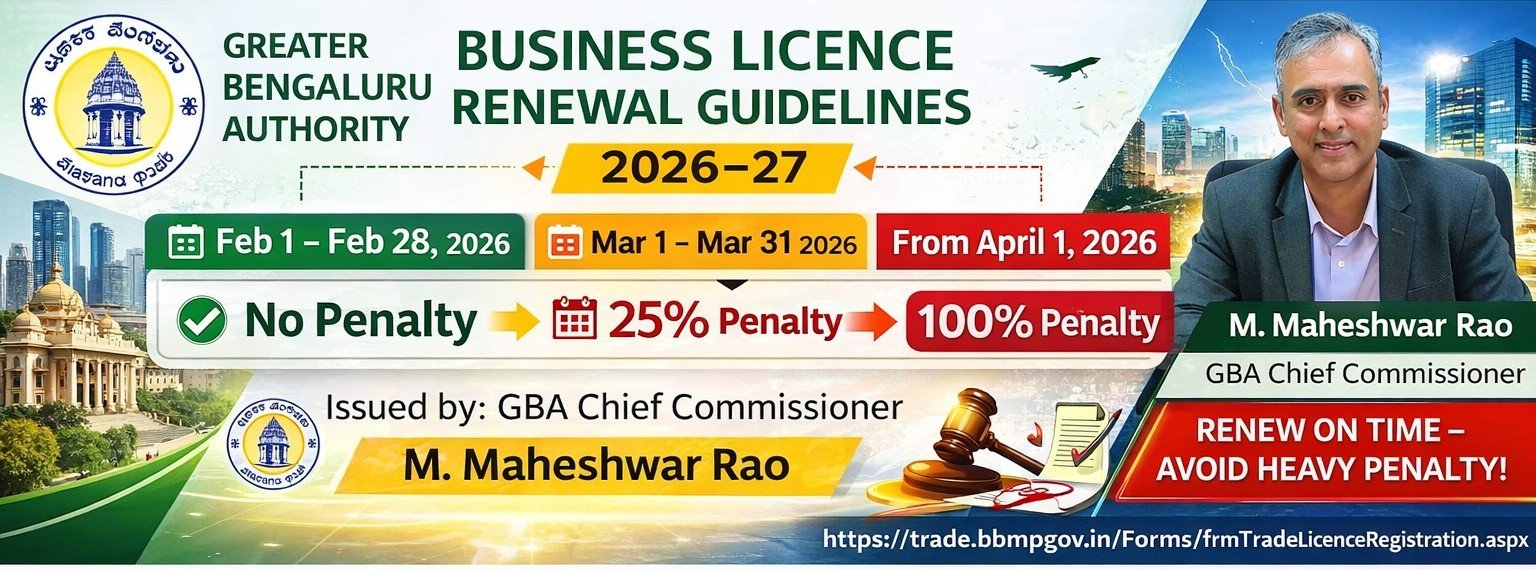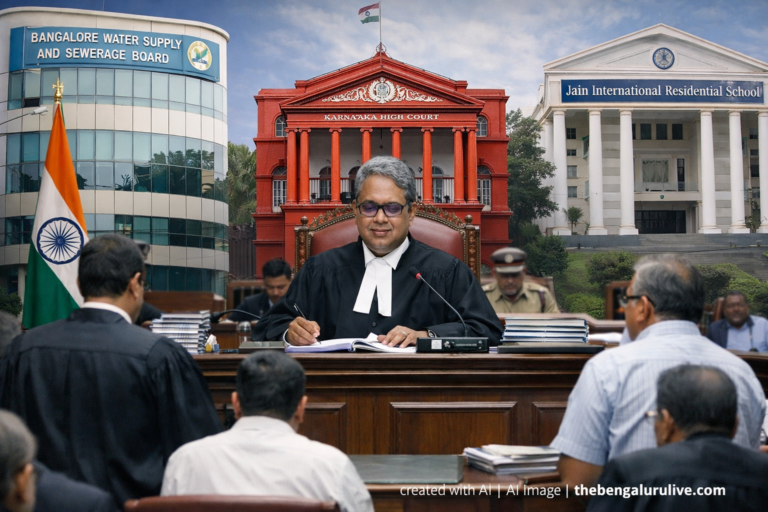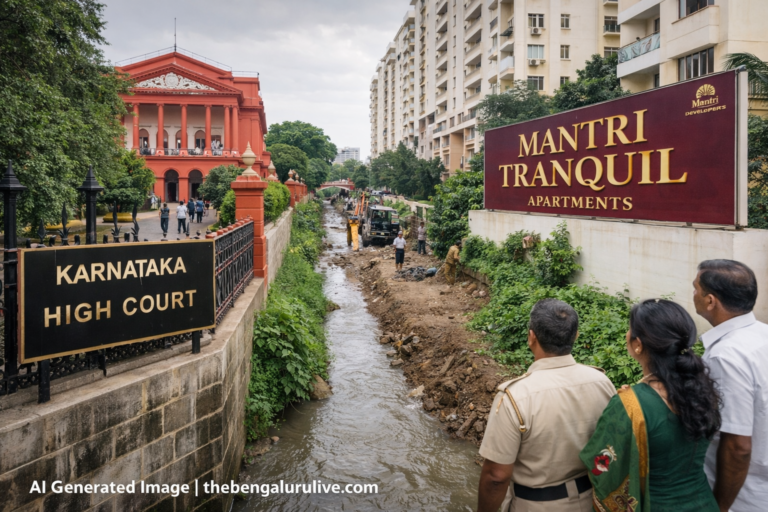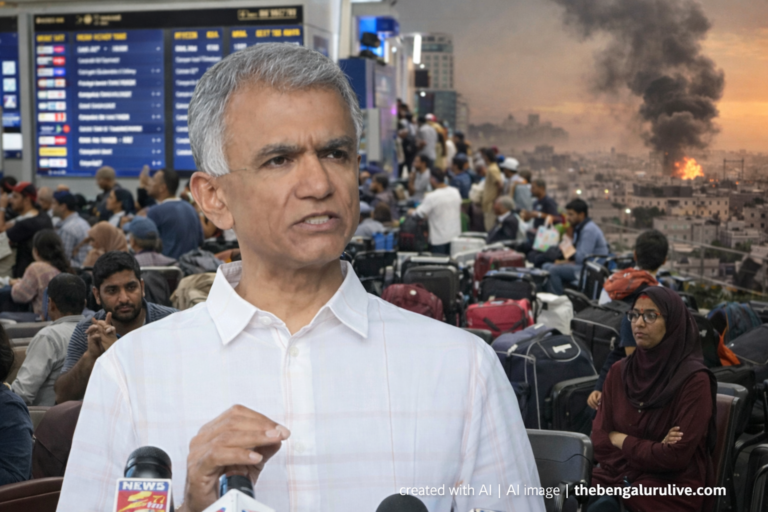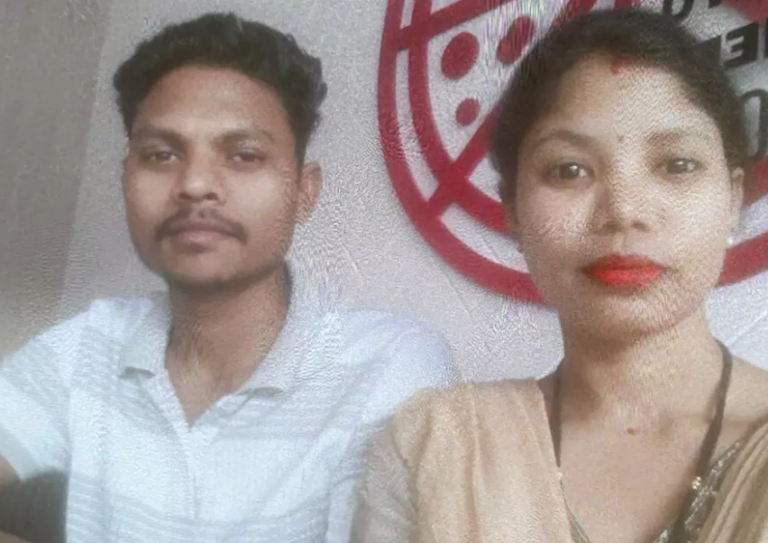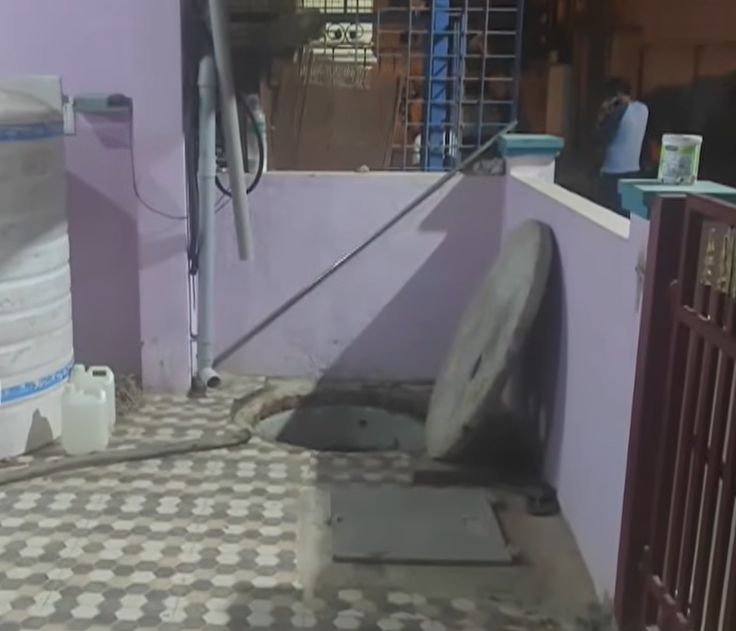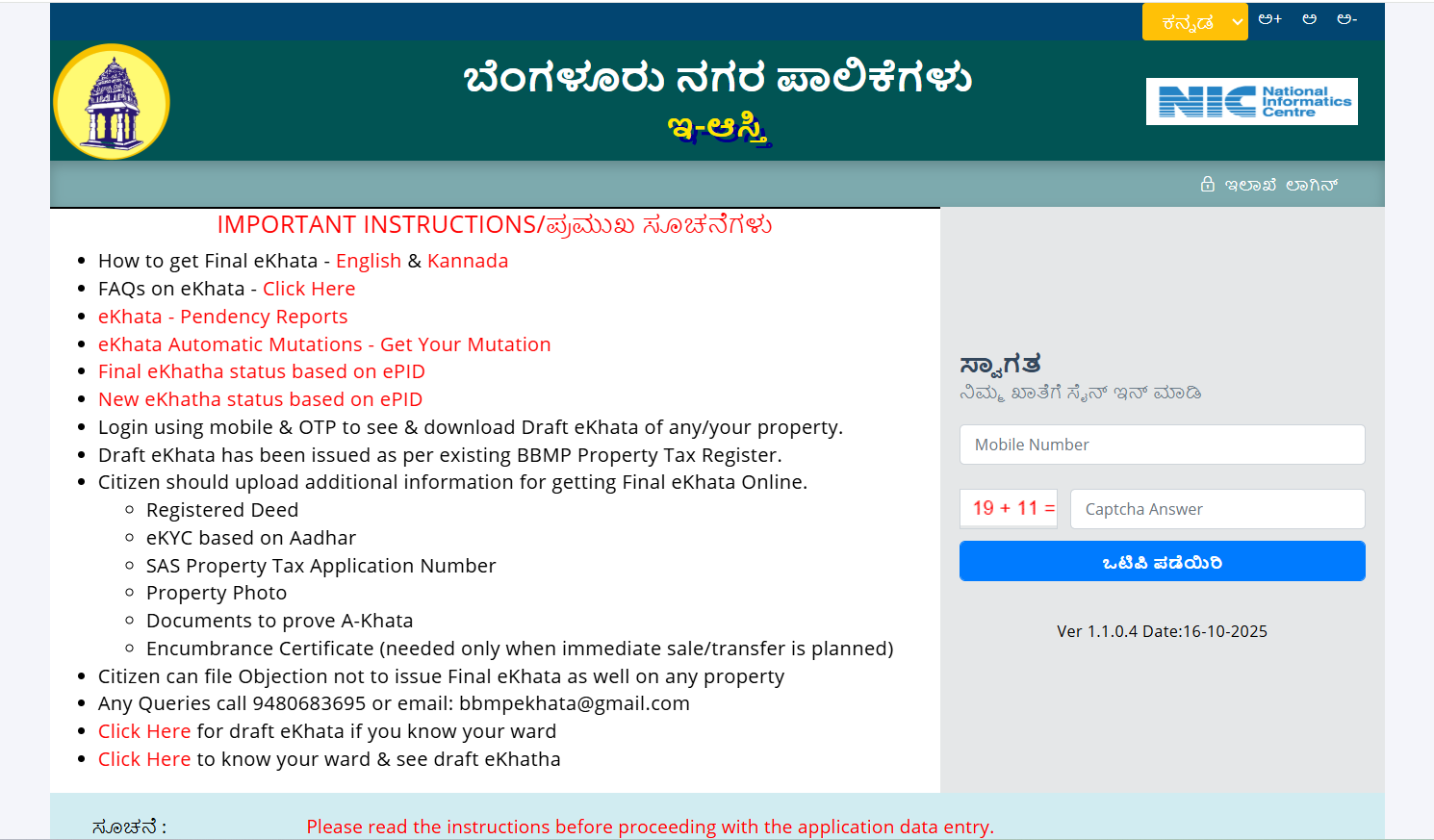
Bengaluru: Bengaluru’s dream of digital transparency has turned into a bureaucratic nightmare for thousands of property owners.
Under the Greater Bengaluru Authority’s (GBA) latest “Round Robin” approval system for E-Khata (E-Aasthi), citizens are finding their property files shuttled between multiple city corporations — with no idea where they’ve gone, who’s handling them, or when they’ll be cleared.
Designed to curb local-level corruption, the system has instead become a digital harassment mechanism, trapping honest taxpayers in endless loops of uncertainty and confusion.
Homeowners Caught in Bureaucratic Crossfire
For Bengaluru’s homeowners — from Koramangala to Yelahanka — obtaining an E-Khata has become a test of endurance.
When a citizen applies for an E-Khata conversion, the file is no longer processed by the Assistant Revenue Officer (ARO) in their local zone. Instead, it’s automatically diverted to an ARO in another city corporation under the so-called “Round Robin” model.
“I applied for an E-Khata for my property in Koramangala, but my file was sent to Dasarahalli for approval — an officer who has never seen my area,” said one exasperated homeowner.
“How can someone sitting 25 km away judge my property documents? This isn’t transparency; it’s digital helplessness.”
Officials claim the randomisation prevents local corruption by avoiding direct contact between citizens and local staff. But in practice, it has erased accountability — no officer feels answerable, and applicants can’t trace their files.
A ‘Digital’ Process Without Human Sense
Across the city, homeowners report weeks-long and sometimes months-long delays in getting their E-Khata approvals — a document essential for property sales, loans, and utility connections.
“You can track your food delivery in 15 minutes but not your E-Khata in 15 weeks,” quipped a frustrated taxpayer.
Applications are often bounced back with vague objections from distant officers unfamiliar with local layouts. Even minor clerical errors trigger repeated rejections, freezing transactions and eroding faith in the city’s digital governance.
Citizens Question the Logic Behind the ‘Round Robin’
Urban governance experts have criticised the logic of assigning approvals to officers outside their jurisdiction.
“It’s like asking a traffic inspector from Shivajinagar to verify encroachments in Kengeri — legally indefensible and administratively absurd,” said a retired BBMP official.
Insiders admit the system was pushed through in haste to showcase “innovation,” but has backfired — creating digital opacity instead of transparency.
Civic Collapse Deepens
The E-Khata chaos mirrors a wider collapse of civic order across Bengaluru. Roads remain cratered, garbage heaps grow daily, and the Greater Bengaluru Authority (GBA) along with the Bengaluru Solid Waste Management Limited (BSWML) face public outrage for their heavy-handed tactics.
Residents allege that BSWML teams are tracing addresses from e-commerce bills found in roadside waste and dumping auto-loads of garbage outside homes as punishment for “littering.”
“We’re paying taxes but being treated like criminals,” said a resident of BTM Layout.
“From Khata harassment to garbage dumping, the system has completely lost its moral compass.”
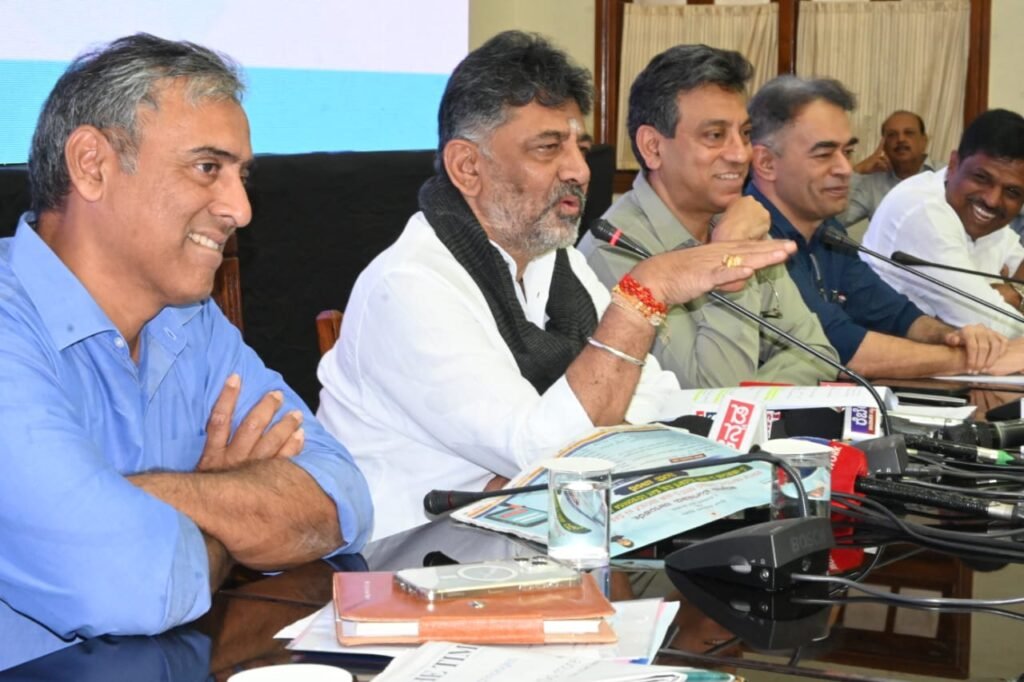
Top Bureaucrat Promises Fix, Admits Harassment
Amid widespread criticism, Tushar Giri Nath, IAS, Additional Chief Secretary, Urban Development Department (UDD) and former BBMP Chief Commissioner, acknowledged the flaws and pledged corrective action.
In an exclusive response to The Bengaluru Live, he stated:
“I will call a meeting of GBA officials to chalk out an implementable scheme. We are rolling out an automatic approval system — once all checks are verified and at least one officer in the chain marks ‘OK,’ the E-Khata will be auto-approved.”
He admitted candidly:
“The powerful get their work done through influence and money. But the common man faces unimaginable harassment. That must end.”
The Bengaluru Live Urges High Court Intervention
Given the scale of civic dysfunction, The Bengaluru Live has urged the Chief Justice of the Karnataka High Court to take suo motu cognizance of Bengaluru’s deepening administrative crisis.
“There is no control or coordination between the five city corporations under GBA. Taxpayers — not defaulters — are being punished,” the editorial said.
“Judicial oversight is now essential to restore fairness, transparency, and public faith.”
Also Read: Penalise Them, Mr. D.K. Shivakumar — But You Have No Legal Right to Dump Garbage at Citizens’ Homes
Governance Without Ground Reality
A reform meant to deliver digital ease has instead produced digital distress.
The Round Robin E-Khata model, envisioned as an anti-corruption tool, has punished honest citizens while shielding inefficiency.
Until accountability and empathy replace arrogance and indifference, Bengaluru’s digital transformation will remain a symbol of how technology without human sense can deepen corruption instead of curing it.
Also Read: Bengaluru Live Confronts GBA Chief Maheshwar Rao Over E-Commerce-Linked ‘Auto-Dumping’ of Garbage

